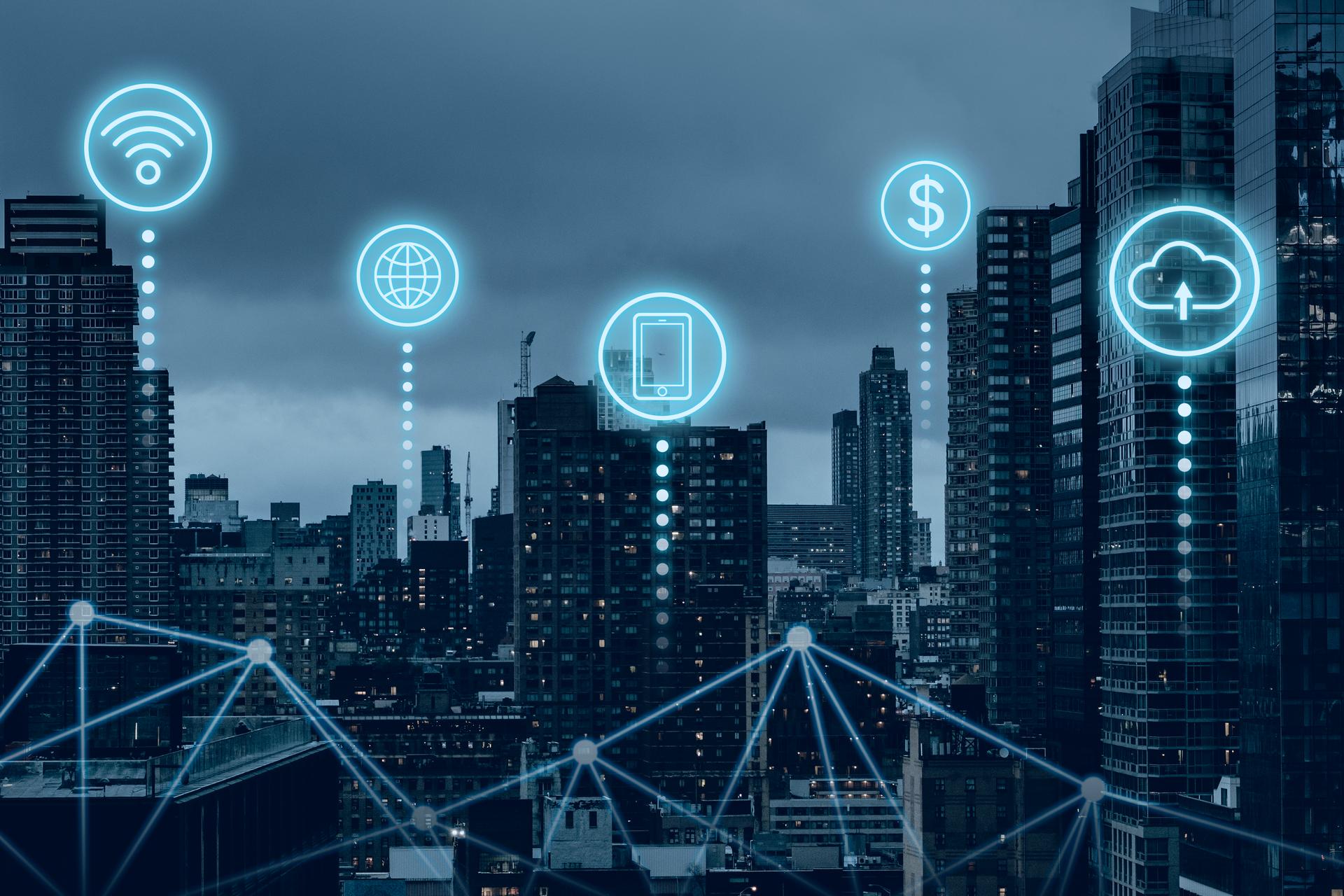The Impact of IoT on Real Estate: Revolutionizing the way, where, and how we live and invest!
I. What Is IoT in Real Estate?
The Internet of Things refers to a network of interconnected devices embedded with sensors, software, and technologies that exchange data over the internet. In real estate, IoT encompasses everything from smart lighting systems and thermostats to advanced building management systems (BMS), occupancy sensors, and predictive analytics platforms. In essence, IoT brings intelligence and interactivity to physical spaces.
II. Key areas where IoT is reshaping real estate?
1. Smart Homes and Apartments: Smart homes are one of the most recognizable outcomes of IoT. Devices such as Amazon Alexa, Google Nest, and Ring doorbells allow homeowners to control lights, temperature, locks, appliances, and even security cameras using smartphones or voice commands.
Impact:
- Enhances lifestyle and convenience
- Reduces energy costs through intelligent automation
- Increases property value and buyer appeal
💡According to Statista, the global smart home market is projected to reach USD 231.6 billion by 2028, growing at a CAGR of over 10%.
2. Energy Efficiency and Sustainability
IoT enables buildings to monitor and manage energy usage more effectively. Smart HVAC systems, lighting, and water systems can adjust in real-time based on occupancy or weather conditions, thereby reducing waste.
Impact:
- Lowers utility bills for residents
- Helps buildings achieve green certifications (like LEED or IGBC)
- Appeals to environmentally conscious buyers and tenants
💡In Bengaluru’s RMZ Eco world, smart IoT systems track carbon emissions, energy usage, and air quality to maintain optimal building performance.
3. Predictive Maintenance and Facility Management
Traditionally, property maintenance has been reactive fixing something after it breaks. IoT flips this script with predictive maintenance. Sensors in elevators, HVAC units, or plumbing systems can detect early signs of malfunction, sending alerts before issues become major problems.
Impact:
- Reduces downtime and repair costs
- Extends the lifespan of building systems
- Enhances tenant satisfaction and retention
💡Our reports show that predictive maintenance powered by IoT can reduce maintenance costs by 20 to 25% and extend equipment life by up to 35%.
4. Improved Security Systems
IoT enables real-time surveillance and automated security in both residential and commercial buildings. Features include biometric access control, motion sensors, intrusion alerts, and live video feeds.
Impact:
- Offers peace of mind to residents and landlords
- Enables remote monitoring and control
- Increases asset protection and liability reduction
💡DLF Cyber City in Gurugram uses an IoT-driven command center for security, with live feeds from hundreds of cameras and instant threat alerts.
5. Data-Driven Decision Making in Real Estate Investment
IoT sensors can provide granular data about foot traffic, occupancy rates, energy usage, and tenant behavior. Real estate developers and investors can use this data to make informed decisions about design, pricing, and operational strategy.
Impact:
- Improves ROI by targeting investments effectively
- Helps in customizing amenities based on real-time usage
- Enhances due diligence and asset valuation
💡A Deloitte study states that real estate firms using IoT data analytics have seen up to 30% improvement in operating efficiency and 10–15% higher tenant satisfaction.
6. Remote Property Management
With IoT, property managers can oversee multiple buildings from a central dashboard. Smart locks, thermostats, lighting, and surveillance can all be controlled remotely, reducing the need for on-site staff.
Impact:
- Cuts down on operational costs
- Enables 24/7 control and monitoring
- Ideal for managing rental properties or co-living spaces
💡In India, co-living startups like Stanza Living and Zolo use IoT tech for access control, electricity tracking, and maintenance alerts across properties.
III. Benefits of IoT Integration in Real Estate
IV. Challenges to Consider
1. Data Security & Privacy:
With smart devices constantly collecting data, there's a risk of cyberattacks
or unauthorized access. Ensuring encryption, firewalls, and GDPR/DPDP
compliance is essential.
2. High Initial Costs: Installing IoT systems can be expensive upfront,
especially in older buildings not designed for tech integration.
3. Interoperability: Many IoT devices from different manufacturers may not work
well together.
4. Skill Gap: Facility managers and staff may need training to manage and operate
IoT-enabled infrastructure effectively.
V. The Future of IoT in Real Estate
IoT will continue to evolve from simple device automation to fully integrated ecosystems. With the emergence of 5G, edge computing, and AI, the capabilities of smart real estate will expand dramatically.
Trends to Watch:
- Digital Twins: Real-time virtual replicas of buildings for simulation and
management.
- AI-Driven Smart Cities: IoT will form the backbone of sustainable urban
planning.
- Blockchain + IoT: For transparent, tamper-proof records of property data and
transactions.
The integration of IoT into real estate is more than a trend, it’s a revolution that’s redefining how properties are designed, bought, sold, and lived in. From smart homes and predictive maintenance to data-led investment strategies, IoT is making real estate more efficient, responsive, and valuable. Whether you’re a homeowner seeking convenience, a developer aiming for innovation, or an investor looking for better returns, embracing IoT is no longer optional, it’s essential for future-ready real estate.
Source: JLL Primary Research
Author: Sumedha Das
Are you a landlord?
Are you looking to lease or sell your properties? Advertising your property online with JLL is completely free. Reach hundred of thousands of potential tenants and buyers online.
